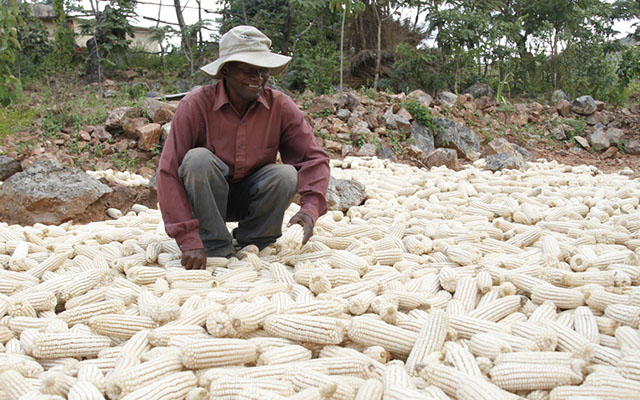Speak with common voice

The Republic of Cuba’s Foreign Affairs Minister Honourable Bruno Rodriguez Parrilla was in Zimbabwe for an official visit from November 29 to December 1. Zimbabwe was among the four African countries he visited. A distinguished soldier who was among the troops deployed by Cuba to fight with Angolan forces against insurgents funded and armed by the US and apartheid South Africa, Honourable Rodriguez
Parrilla (RP) held an exclusive interview with our Foreign Editor Tendai Manzvanzvike (TM) on a wide range of issues.
TM: Honourable Minister, it’s a pleasure to have this opportunity to welcome you to Zimbabwe and speak with you. You’re leading a high-powered delegation. What is the purpose of your visit?
RP: I’m very pleased about this visit. This is my first official trip to Africa. Zimbabwe is part of my itinerary. Our presence here represents a strong bond of friendship that exists between our countries.
I was deeply honoured being received by President Mugabe, an African and international leader and founding father of African independence.
We confirm excellent bilateral relations and a special bond between our leaderships, our governments and our countries. At the same time, we are fully committed to supporting Zimbabwe.
I also congratulate my dear brother and Minister Honourable (Simbarashe) Mumbengegwi on the success of Zimbabwe against illegal economic sanctions. I express my deep condemnation of these unjust measures.
TM: Which other countries are you visiting or have you been to?
RP: I visited Ethiopia in a bilateral capacity and received the warmest hospitality there and had fruitful discussions with the president and the prime minister.
I also met the African Union Commission Chairperson Dr (Nkosazana) Dhlamini-Zuma in my capacity as the presidency of the Economic Community of Latin American and Caribbean States.
I also paid an official visit to Seychelles, and, I’ll proceed to Angola passing through South Africa. I had some informal but very substantial talks with some South African authorities.
TM: Minister Mumbengegwi described you as a comrade-in-arms who as a young man was part of the glorious victories on African soil, “a comrade-in-arms who came to lay his life on the line for our liberation.” Can you shed some light about your role during Africa’s liberation struggles?
RP: Well, I visited Angola once a couple of years ago accompanying President Raul Castro when he paid an official visit. I left Luanda on April 28, 1988 after finishing my internationalist mission as a lieutenant of the Cuban army in Angola and I was deeply honoured, sharing with MPLA and also with Swapo comrades in fighting for national freedom and defeating apartheid.
TM: Does it feel different now from that time when you fought in Angola and now you coming back when all countries in the region have attained independence?
RP: Well, Africa has a special priority for Cuba. We are Latin American and African people by our cultural roots and ancestry. We also share common elements in our struggles for exercising sovereignty on our national resources and defending our path based on self-determination and looking for the same goals in international peace and security and full observation of international law.
I come to Africa more than ten years after these occasions and I confirm not only the resilient spirit of freedom on this powerful continent, but at the same time, the validity of our goals at this time and celebrating the end of apartheid, the freedom from oppression of (Nelson) Mandela; the implementation of United Nations resolutions and the granting of independence to Namibia, and the preservation of Angola’s independence.
I feel that there is a special and promising moment for Africa and for Latin America and the Caribbean states. If we could unite in our efforts, and speak with a common voice and in a louder way, we will be listened to by the international community.
TM: Zimbabwe and Cuba share a common problem of sanctions. While the US imposed illegal sanctions on Zimbabwe 13 years ago, Cuba has been under an economic embargo from the US for more than 50 years now.
RP: Sure!
TM: Cuba has in a way managed to bust those sanctions, because it is able to train and send professionals (doctors, engineers and other professionals) to Africa and Latin America. If Cuba has managed to survive under sanctions this long, how can Zimbabwe do likewise?
RP: Unfortunately, the US official policy for Cuba is illegal. They seek regime change, by enhancing non-conventional wars and even strengthening the blockade in our financial transactions. I could say that the US policy against Cuba is the only isolated thing.
We have also overcome the more than 50-year economic sanctions in the most comprehensive way in human history because of the strong political leadership of the Cuban Revolution led by Commander-in-Chief Fidel Castro Ruz and President Raul Castro Ruz; and, because of our strong unity; the leadership of our Communist Party; our cohesion, the monolithic cohesion of our people in supporting the Revolution in an overwhelming way.
These unjust, illegal and unilateral sanctions are in contravention of the Geneva Convention. At the same time, they are an act of economic war with the most cunning human and economic damage on three generations of Cubans.
Seventy-six percent of Cubans were born under the blockade policy and every Cuban family has suffered serious consequences through shortages, hardships in their day-to-day lives even for our children, the elderly reaching a peak of US$1 trillion in cumulative economic damages.
But, we are a resilient country, a resilient economy. We are updating our economic model toward socialism, toward a more efficient economy, higher productivity and looking for economic sustainability of the Cuban Revolution.
We are succeeding. No doubt about that. In a couple of decades, Cuba rose from being a sugar producer, to the most important exporter of medical services; from a raw materials exporting economy to a knowledge services economy, and right now, we’re in a better condition for granting the continuity of the Cuban Revolution.
TM: This is one of the things that amaze observers that notwithstanding the challenges, you’re sending lots of professionals to other nations who could very easily not return to Cuba, like the Medical Brigades. We have seen this in Zimbabwe. We see that they are so committed to their country and are very patriotic. What is it about the Cuban spirit that makes them not want to sell out the Revolution?
RP: We Cubans have been educated as patriots loyal to our historical traditions, country and people with a very strong and independent spirit, with profound spiritual and ideological values and with historical convictions not only ready for fighting and working for our national independence, sovereignty and peaceful development. We’re making a substantial contribution to the whole world especially to countries in the South.
We feel a depth of gratitude to the African countries, to the African people since the beginning of our independence, for their close articulation with our national independence, abolition of slavery and social injustice.
At the same time, we continue guiding our children to be loyal to these special feelings and traditions as Cuban patriots and world citizens.
And, we will continue in our international cooperation, overcoming geographical distance and even our economic difficulties.
TM: And, Honourable Minister, the Cuban Five, illegally jailed in US prisons on trumped up charges of terrorism are a symbol of Cubans’ belief in shaping their destiny. Meanwhile, the real terrorists against Cuba are walking free in the US and receiving lots of support from Cuban-American dissidents in Miami. What’s your comment?
RP: First of all, the US is the only place worldwide in which anti-terrorists have been jailed and well-known international terrorists are free and are having political participation in Miami, like the author of the bombing of a Cuban airliner in 1976, which killed all 73 people on board.
It was the first bombing against a civilian aircraft. The Cuban Five had been fighting terrorism. They never attempted to obtain secret or classified information from the US government. They’re not spies but are anti-terrorist fighters who were investigating terrorism against Cuba after which they would share the information with the US.
The US government prosecuted them without due process in a very unjustifiable manner; frightening jurors and creating a hostile atmosphere through the media during the trial.
The Cuban Five are absolutely innocent. They should be released unconditionally and immediately as an act of justice or at least as a humanitarian act. President Obama has full powers to do that.
There is also strong support from an increasing number of US citizens and also among the Cuban migrant community for the lifting of the blockade imposed on Cuba. Thus the violent right-wing terrorist groups in Miami – we call them the Cuban mafia – are increasingly isolated.
TM: What are your final remarks about the bilateral relations between Zimbabwe and Cuba?
RP: There are very special bonds between President Mugabe, Fidel and Raul. I remember the historical attendance and visit paid by President Mugabe to Cuba during the Non-Aligned Summit in 2006. We hope that we will receive the President again in order to honour him as the historical leader of Africa, Zimbabwe and Cuba’s closest friend.
There are also special links between our parties, our governments and special bonds between our people. We feel really pleased about the current progress in Zimbabwe – construction of sovereignty to determine the future.
And, I’d very much like to express my gratitude and appreciation on the stand taken historically by Zimbabwe in defence of the Cuban revolution, even against the US blockade, which has had adverse human and economic effects.
TM: Thank you very much Honourable Minister.
RP: My pleasure!








Comments